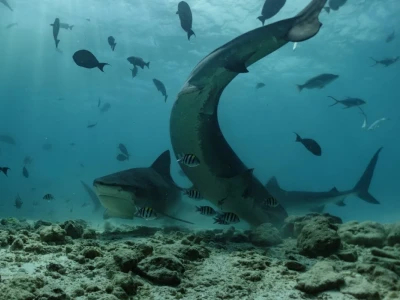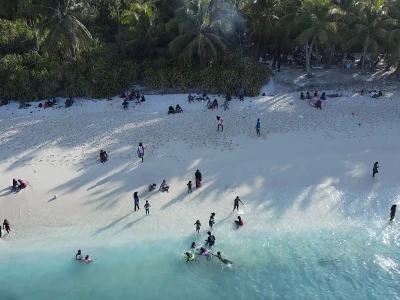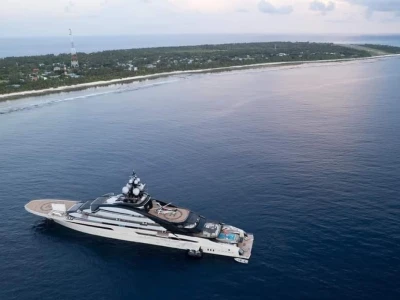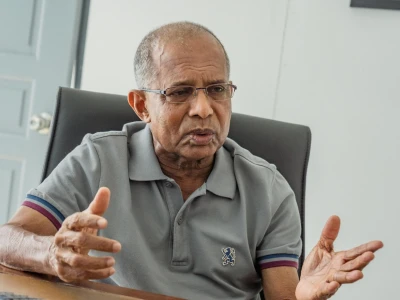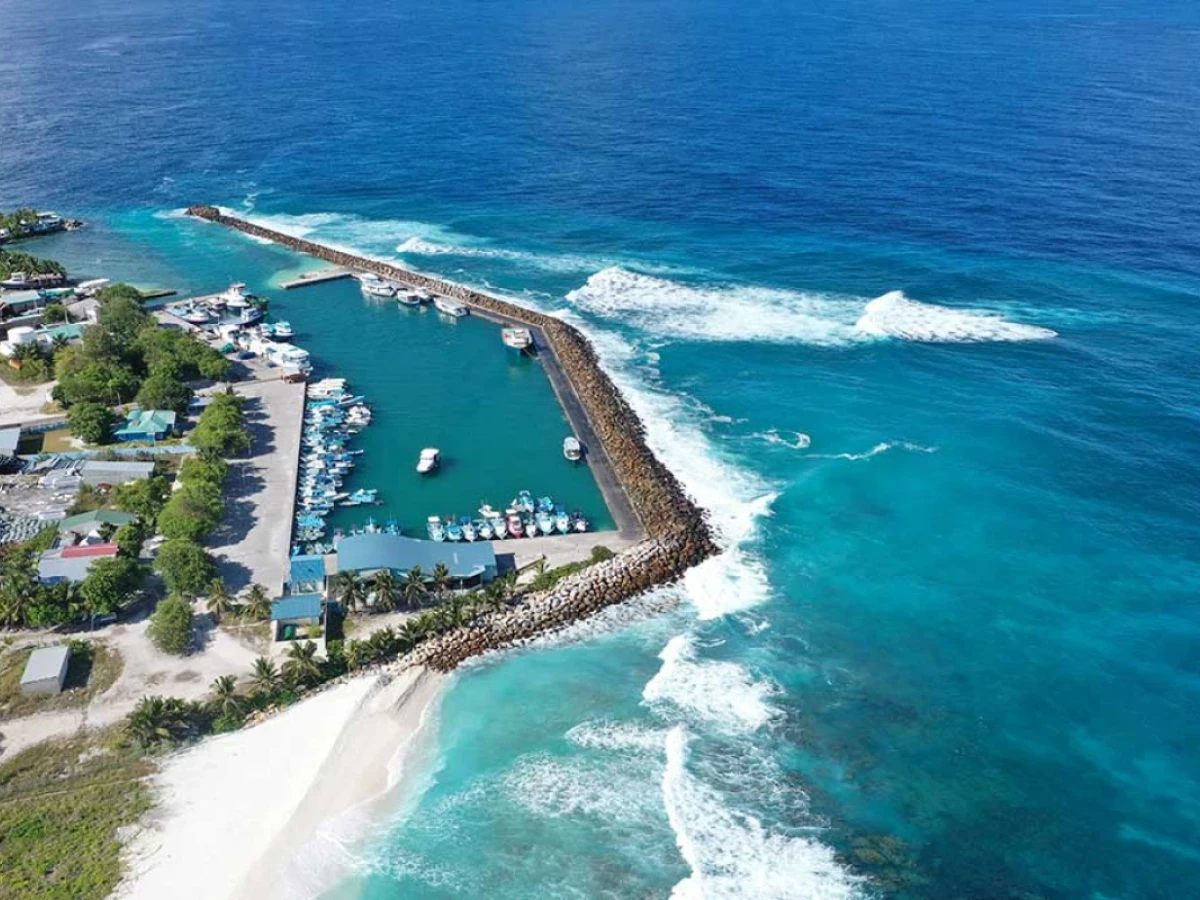
Dive taxes pose serious challenge to Fuvahmulah's budding tourism
Under new regulations gazetted by the council earlier this month, payment of the fee grants 15 days for diving.
By
Ahmed Mizyal
It has never been done before, to charge a Maldivian to dive in Maldivian waters. Whether a diver is a local or a foreigner, paying for the services provided by dive schools is a different matter altogether.
In addition to the prices charged for the services provided by dive schools, a tax is being levied on diving for the first time in Maldives. This is being introduced by the Fuvahmulah City Council. However, dive schools in the island are expressing their dissatisfaction with the council's decision, describing it as killing the budding tourism industry in Fuvahmulah.
Under new regulations gazetted by the council earlier this month, payment of the fee grants 15 days for diving.
Locals, work permit and student visa holders:
-
Foreign vessels – USD 200 per person
-
For dive schools in other atolls and safari vessels – USD 20 per person
-
Dive schools based in Fuvahmulah - USD 20 per person
Foreigners:
-
Foreign vessels – USD 200 per person
-
For dive schools in other atolls and safari vessels – USD 55 per person
-
Dive schools based in Fuvahmulah - USD 40 per person
Though the regulations has come into effect from the day it was published in the gazette, fees will be levied on divers from September.
None of the dive schools in Fuvahmulah wish to be named while they would like their concerns addressed. Dive school owners who spoke to Atoll Times described the council charging a fee as an attempt to dominate the business.
"I think there are two objectives. One is to take over the diving sector. The other is to generate a lot of revenue from the businesses," a dive centre owner said.
The owner of another dive school in Fuvahmulah said the island's tourism is still in its infancy and the island has not been properly marketed.
“While this is the case, the council is levying taxes on budding businesses without even providing us the basic facilities in the first place,” he said.
"We [diving centres and tourists] have a shortage of harbour space. We have to take tourists ashore from the rough side of the port. There are no amenities available for tourists at the harbour either; to use the toilet or even sit in the shade."
Noting that diving and tourism account for the bulk of the income in Fuvahmulah, he said that although dive schools are the biggest source of income for the island, preference is given to cargo ships, safaris and fishing boats instead of their vessels.
He said that whenever he shares his concerns with the council about such difficulties for dive schools, the council's response is that they need a budget to provide these amenities.
There is a shortage of space in the port of Fuvahmulah and tourists have been injured in the past while trying to get to shore, which is the area now given to dive schools.
"For everyone's safety, everyone needs to have regulations made. We can't talk about taxes yet. We don't get the most basic services," he said.
Fuvahmulah tourism could be ruined
Dive school owners who spoke out against charging fees for diving say it will have a major negative impact on tourism in Fuvahmulah.
"Still, a lot of foreigners don't know that they can dive here. So it wouldn't be nice to have a fee like this levied at a time when we're spending a lot of money to advertise and market this place," a dive school official said.
"If a lot of people know and come, they can begin charging fees then. And if they can wait a few years and do this, they can take USD 100, not USD 40 per head."
He said that while the number of tourists during the low season is so low, not everyone comes to dive.
-
During the high season, about 10 - 30 people come to the school daily to dive
-
During low season, no more than 10 people per day; Some days not a single person comes
Dive centres in Fuvahmulah have so far not imposed the hefty tax on divers, and they say the council's role in the efforts so far to grow the sector is almost none.
"Individuals came to this point by their own efforts. They made their own brochures, bought tickets at their own expense and went out and advertised," one of the owners said.
He said the council has done nothing to promote diving in Fuvahmulah except going to a dive show in Thailand this year.
"That too with the help of dive schools," he said.
In addition, the dive centres said that while domestic air tickets are expensive to travel to Fuvahmulah, additional fees could increase the price of holidays in Fuvahmulah and reduce the interest of people to visit the island, while the other islands in the Maldives charge nothing and provide the same services. ADh. Dhigurah is a good example of such advantage to other islands.
"This is not a resort. It won't be that level. Then when the taxes go up and the prices go up to the level of a resort, this place will not be of any value to diver," a dive centre official said.
"This is a protected island. So it's not a problem to charge an entry fee. But we don't want to charge a fee from the locals."
If a tax is levied, the money should benefit the development of the island and the diving industry, dive centre officials say. For example, if a fee is charged, they believe that the island's nature park could be developed.
The council held a consultation meeting with dive school owners before deciding to charge the fees. At the meeting, some centres suggested that they charge an annual fee instead of charging a fee for each dive. Some centres suggested that if they should charge a fee, it should be capped at MVR 5-10 per person.
However, the decision to charge the dive fee as announced now, according to the centres, was done without further consultation with them.
The fees will be charged from divers in the waters under the jurisdiction of Fuvahmulah from September, according to the relevant regulations. However, the council has been forced to go to the negotiating table again as dive centres are refusing to charge the fee. There are still two months for negotiations. Whatever the decision, it will affect the future of tourism in Fuvahmulah.
